Rebel rocker would prefer the music to do the talking.
When a documentary about Joan Jett’s life and career premiered in 2018 at the LGBTQ+ film festival, Outfest, some called it inappropriate. It’s called OUT fest, and Joan Jett wasn’t, or at least she’d never publicly declared the words. If Jett doesn’t give a damn about her “Bad Reputation,” as suggested by the song (and the name of the docu-biography in question), then why hide?
Jett says she wasn’t. She’d rather show you than tell you.
"They don't want the movie there because I don't declare?” Jett asks in an interview with The New York Times. “What the fuck is that?” she says, pointing to her necklace featuring two axes, crossing each other, inside of two women's symbols crossing each other. “It's not been off since I got it. And I wear this one every day.” She turns around to reveal the same axes shaped like two women’s symbols tattooed on her lower back. “I don't know how much more you can declare."
Joan Jett has long inspired girls and queer kids to wield an ax in the form of a guitar since she was a teenager. At 17, she formed The Runaways — the all-girl, all under-aged, hard-rocking band behind the hit single, “Cherry Bomb.” The Runaways toured with acts like Cheap Trick and Van Halen and gained notoriety in the burgeoning punk scene next to other American acts like the Ramones and the Dead Boys, but the band dissolved after only four years.
Jett is now considered one of the greatest guitarists of all time. However, she maintains that the Runaways weren’t taken seriously as musicians because, as women, their talent was overshadowed by their sex appeal. The only time Rolling Stone wrote about The Runaways in the ‘70s, Jett says, was when the band was kicked out of Disneyland for “lesbian behavior.”
“I learned at a very young age, because I could see the looks in the writers’ eyes when they would ask me questions about the band’s offstage antics, and I could see from the way they asked the questions that if I answered this stuff, that was all they were ever going to write about,” Jett said. “But that’s not what I want people to focus on–I want people to focus on the music. And if they want to know who I am, I write about who I am in the lyrics, so don’t be lazy — read the lyrics and figure it out for yourself.”
Plenty of people will bare Jett’s personal life for her, including former bandmates Cherie Currie and and Lita Ford. Ford writes in her 2016 autobiography, that she once quit the band because the other members were "all gay" saying "First I found out that Sandy, the one I had bonded with the most, was a lesbian. Then I found out that Cherie was messing around with Joan. I was so freaked out that I quit the band.”
Currie’s dalliances with Jett are confirmed in her own memoir and depicted in the 2010 rock biopic, The Runaways (starring a not yet out Kristen Stewart as Jett) of which both Currie and Jett were consultants. “First of all, back in the mid-’70s, Bowie had just come out as bisexual and so had Elton John and that was really intriguing,” Currie said. “We experimented. We weren’t in love with each other. We just had fun. I like that it’s in the film. So many kids go through these serious guilt trips. I want them to know it’s okay.”
From Jett’s perspective, her influence on queer culture is revealed in the music. And the references are everywhere.
Let’s start with track one, side one of Jett’s debut album in 1980. It’s not a coincidence that Jett would choose to cover Lesley Gore’s 1964 hit, “You Don’t Own Me” to communicate her own story. Gore was the 1960’s version of an angsty queer girl who found fame as a pre-teen. Gore - who came out in 2005 - had already achieved the status of beloved junior high pop princess with the whiny breakup tune, “It’s My Party” and the catty revenge sequel, “Judy’s Turn to Cry.” But in 1964, Gore changed her persona from desperate-girl-seeking-male-attention to second-wave-feminist with an anthem about self-worth. “You Don’t Own Me” was revolutionary because it inspired women to strive for more than the perch of a man’s arm. Jett picks up the mantle for Gore as the next champion for female empowerment in the ‘70s and ‘80s. As a rocker striving to be seen as an equal, Jett is a master at both using the male gaze to her benefit and disrupting it with her own brand of masculinity.
And don't tell me what to do
Don't tell me what to say
And please, when I go out with you
Don't put me on display 'cause
You don't own me
Don't try to change me in any way
You don't own me
Don't tie me down 'cause I'd never stay
It’s on Jett’s second album, I Love Rock ‘n Roll, where the pièce de résistance of queer canon is debuted. Jett’s cover of “Crimson and Clover” turns a psychedelic and ethereal melody into a sapphic and sweaty punk fantasy. Former keyboardist for the Shondells, Kenny Laguna, was Jett’s manager at the time and thought the tune would be an interesting exercise in reinterpretation. He was right. Although the lyrics have always been about sexual longing, Jett cranks up the energy into a pulsating lust and directs all of it toward another woman. The music video’s opening shot is an intentional closeup of Jett’s bright red lips carefully enunciating the words, “I don’t hardly know her. But I think I could love her” as if to emphasize the pronoun.
This is the MTV moment that made any woman watching at home check their pulse and run a diagnostic on their sexuality. “Am I into girls now? Or just Joan Jett?” Sexuality is a spectrum and this exact moment is a litmus test.
The lyrics continue:
Ah, when she comes walking over
Now I've been waitin' to show her
Crimson and clover
Over and over
Who even knows what the metaphor for crimson and clover is supposed to mean but it conjures erotic imagery when Jett whispers it into a microphone. She gives the camera a little smirk because she knows exactly what’s happening to your body temperature.
Joan Jett has always been a template for queer fans, even if her declaration of queerness isn’t as emphatic as some hoped. When the LGBTQIA+ community continues to be targeted by violence and erasure, visibility from powerful and famous people creates safety. Being out erodes the notion that queer sexuality should be secretive or shameful. If it’s normal for Taylor Swift to sing about her boy troubles, it should be equally normalized for a queer singer to do the same.
But Jett has been tokenized her entire career.
With The Runaways, her talents were minimized because of her gender.
As a solo artist, she was rejected from 23 record labels before starting her own.
She chose an all-male backing band in the Blackhearts in order to be taken more seriously as a rock icon. It’s understandable that Jett would’ve spent her nearly 50 year career choosing her words carefully. Her catalog will do the talking.
QUIZ TIME!
It’s so easy when know the rules. It’s so easy, all you have to do is…
Name the punk band whose debut album was produced by Joan Jett.
A. The Germs
B. The Cramps
C. The Dead Boys
D. Rancid
(Scroll for the answer.)
Like this post? If you felt inspired or learned something, consider supporting my work by upgrading to a paid subscription.
Or, if you’d prefer a smaller donation, you can do so below:
Quiz Answer: It’s A - The Germs
Did you catch last week’s issue?





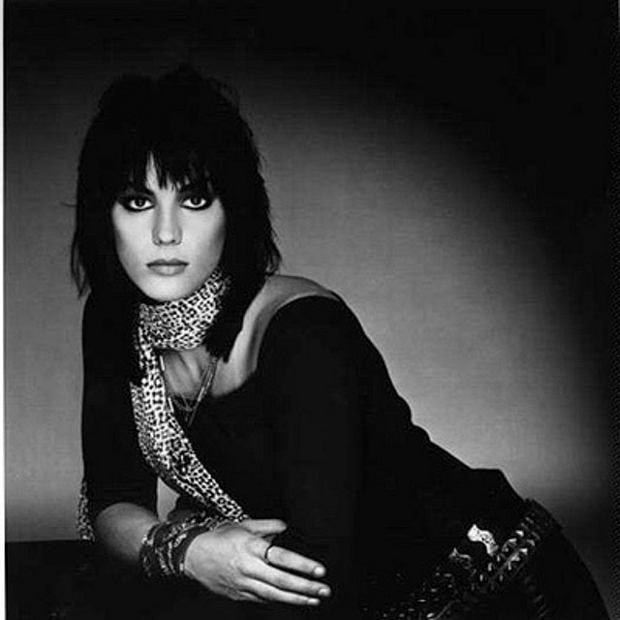
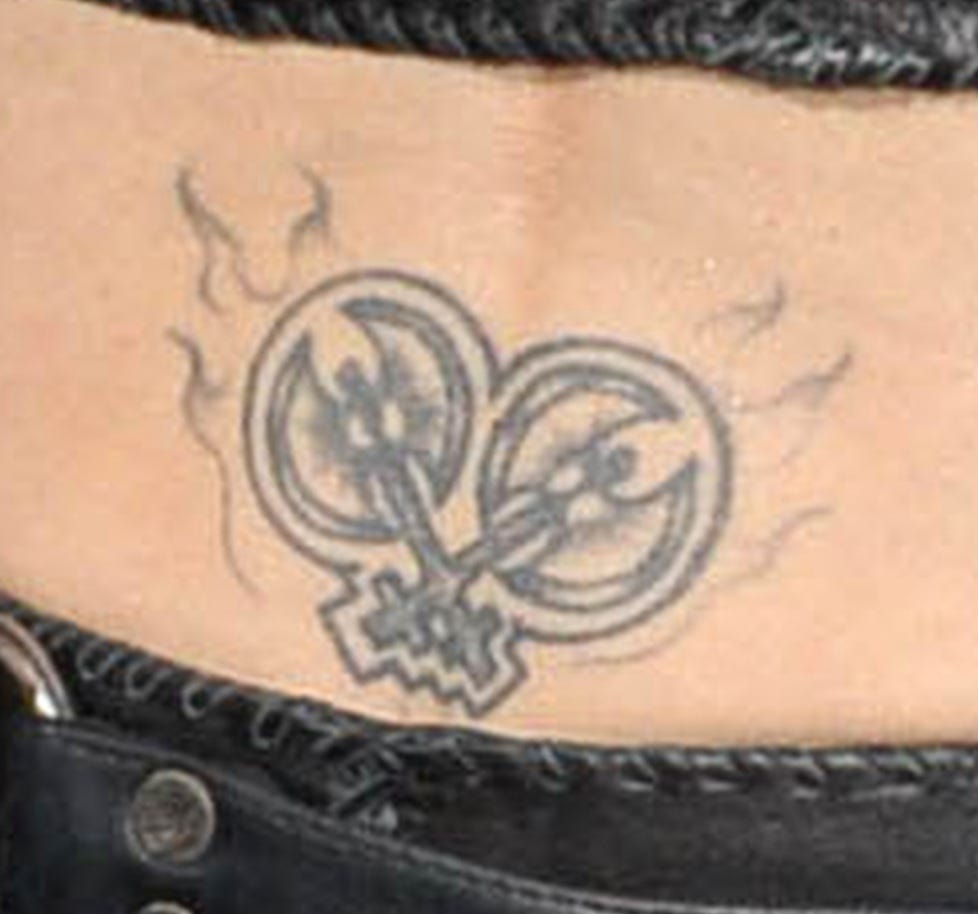
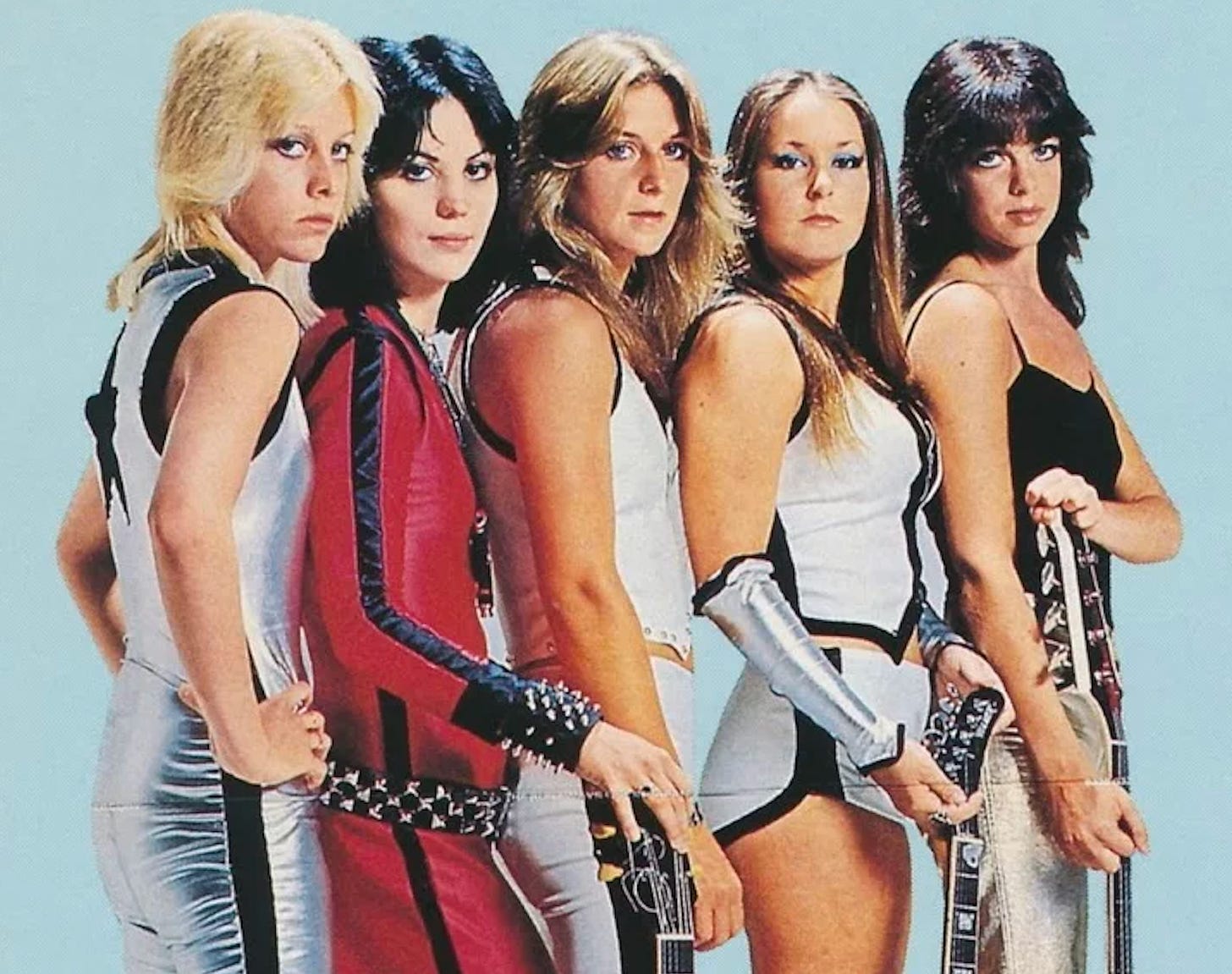
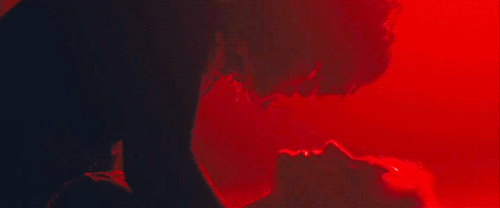
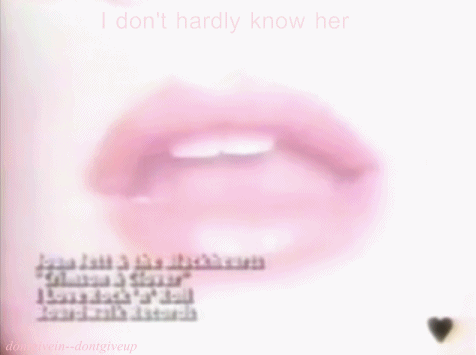
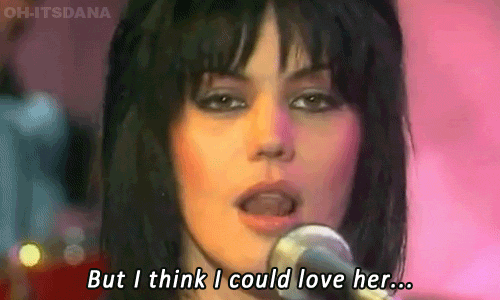
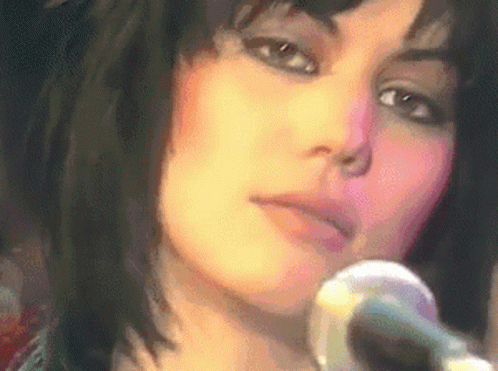
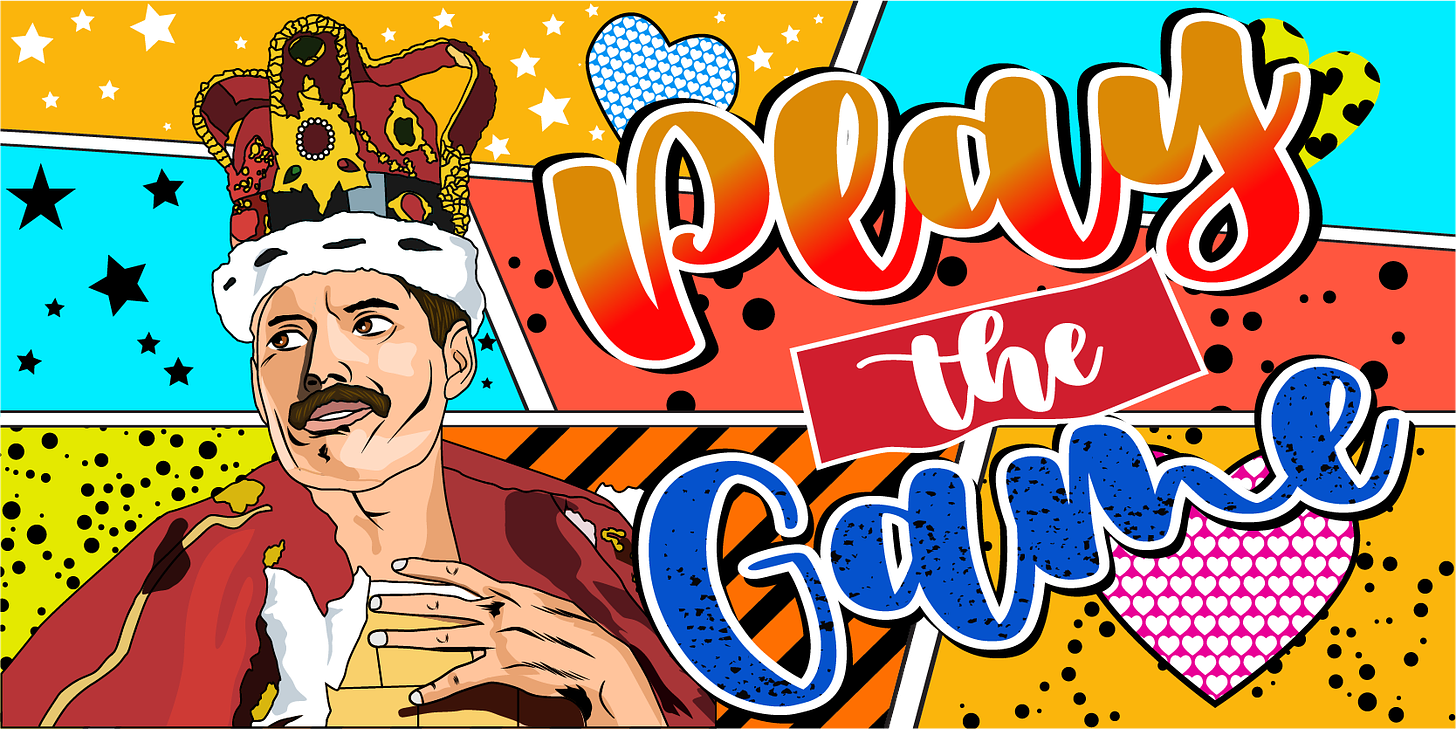
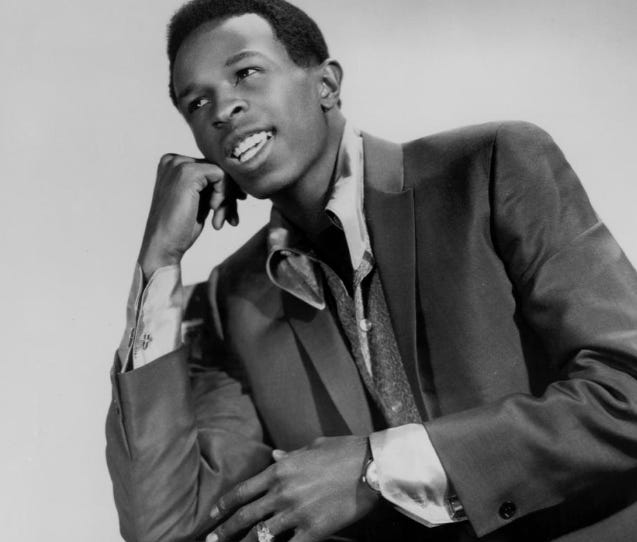
I like "This is the MTV moment that made any woman watching at home check their pulse and run a diagnostic on their sexuality. “Am I into girls now? Or just Joan Jett?”
Reminds me of the first time I saw Chrissie Hynde.
This is so well written. Despite the many times I've heard it, I've somehow never paid enough attention to "Crimson and Clover" to hear that it's obviously a queer song when Joan Jett sings it. That's what happens, I guess, when a song is a hit during one's childhood. Thanks for the jolt of new awareness!